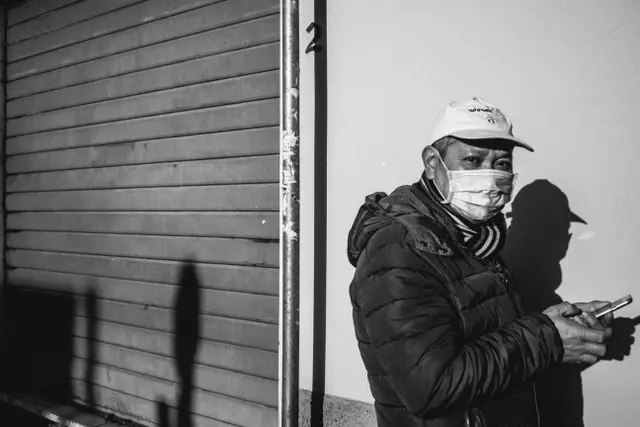By APD writer Alice
As many as 50,000 Chinese in Prato city, central Italy who were once stigmatized as a source of coronavirus infection, now become models for early, strict adoption of infection-control measures.
Two months ago, the Chinese community in Prato of the Tuscany region became the target of "shameful discrimination", according to Amnesty International. They were insulted and violently attacked by people who feared they would spread the coronavirus through Italy.
“Italians feared that the Chinese in Prato were to be the problem. Instead, they did much better than us,” said Renzo Berti, top state health official for the region. He added that no Chinese here got SARS-CoV-2., which has infected 105,000 people and killed almost 12,500 in Italy, more than in any other country.
The Chinese make up about a quarter of Prato’s population, mainly working in the textile industry, but they have helped bring down the entire city’s infection rate to 62 cases per 100,000 inhabitants, almost half the Italian average (115 cases per 100,000 inhabitants).
The Chinese community in Prato went into lockdown from the end of January, three weeks before Italy’s first infection was recorded. Many were returning from New Year holidays in China, the then epicenter. They knew what was coming and spread the word: stay home.
While Italians headed to the ski slopes and crowded into cafes and bars as normal, the Chinese inhabitants of Prato had seemingly disappeared. Its streets, still festooned with Chinese New Year decorations, were semi-deserted, shops shuttered.
There is some anecdotal evidence that Chinese people elsewhere in Italy took similar precautions, though national data on infection rates among the community is unavailable. The health ministry did not respond to an email seeking comment.
Chinese people in other parts of Italy also took similar precautions, although there was no national data on infection rates among the community.
Francesco Wu, owner of a restaurant in Milan, representative of Italian business lobby Confocommercio, said he urged many Italian partners in February to stop business like him.
“Most of them looked at me like a Cassandra,” he said. “No one could believe it was happening here. Now Troy is burning and we are all locked inside.”
Luca Zhou, a Chinese-born businessman, flew from China to Italy on February 4. He quarantined himself in his bedroom for 14 days, avoiding meeting with his wife and 28-year-old son.
"We had seen what was happening in China and were concerned about ourselves, family and friends," said the 56-year-old businessman, who specializes in exporting Italian wine to China.
After the self-quarantine period, he always wore a mask and gloves when going out. Zhou said that some Chinese in the city did the same to prevent spreading the virus to others.
"My Italian friends looked at me like an alien. I tried many times to explain to them that they should wear a mask, but they did not understand," Zhou said.
“When I returned to Prato, no authorities warned about preventive measures. we did all by ourselves. If not, everyone could get the virus, both Chinese and Italians," he said.
Italy was one of the first countries to cut air links with China on January 31, although many Chinese people sought to return to Italy via a third country. On February 8, nearly a month before the closure of all schools across the country, the Italian government allowed students to return from New Year holidays in China to stop attending classes.
More than 360 Chinese families, or around 1,300 people, registered as having put themselves into self-isolation and also signed up to the authority’s remote health surveillance scheme. Among those was Chiara Zheng, 23, a college student, who went into self-quarantine after returning from China.
"I was aware of the seriousness of the situation. I felt a duty to do it for other people and those close to me," said Zheng.
As Italian infections began to take off in late February and early March, some families, many of whom retain Chinese citizenship, even began sending children to relatives in China, due to fears over the attitude and behavior of Italians around them.
All strong actions taken by the Chinese in Prato have made them safe from coronavirus, setting examples for Italians in particular and people around the world to follow in the fight against COVID-19 pandemic.
(ASIA PACIFIC DAILY)
 简体中文
简体中文







